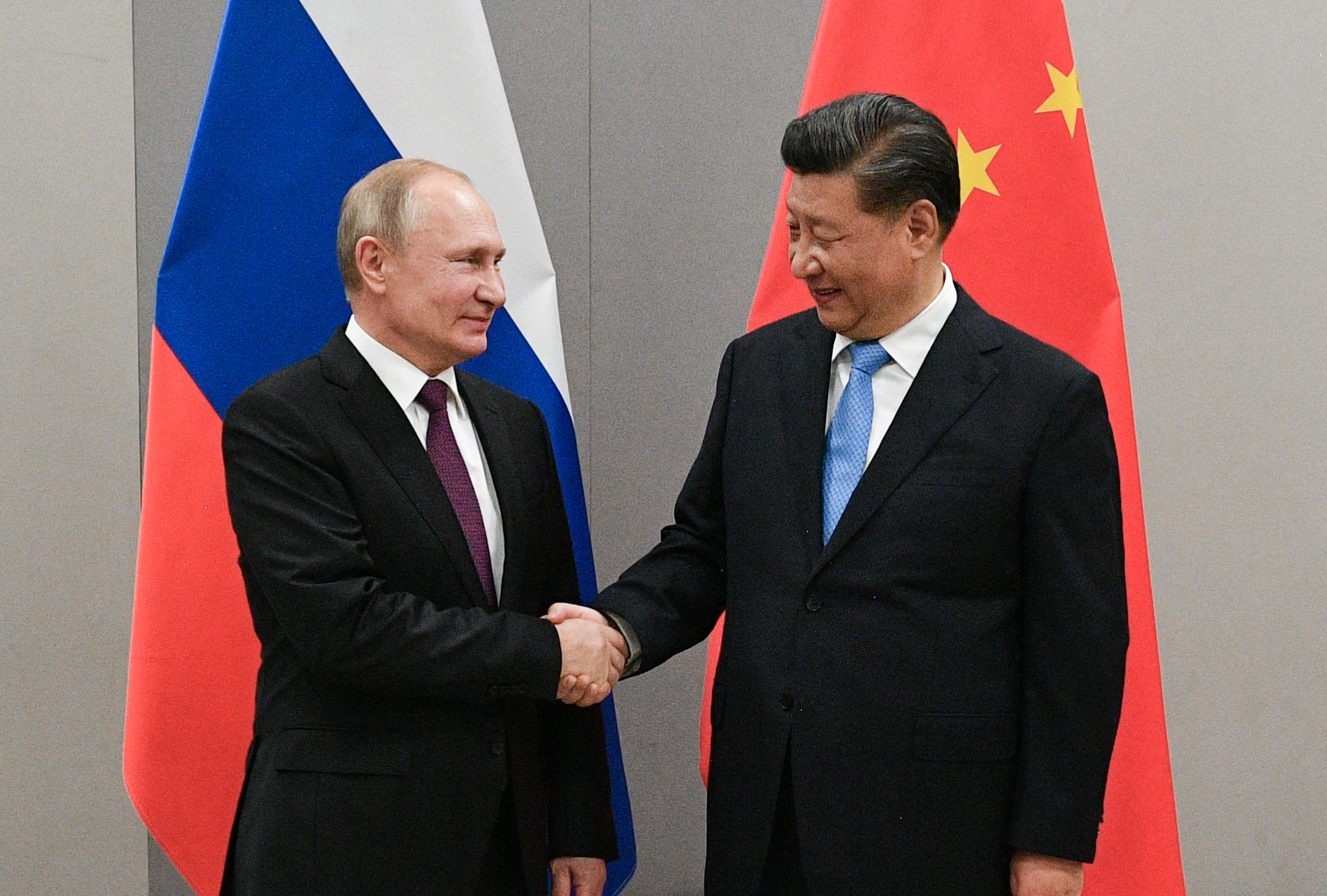China and Russia are posing an increasing threat to Western allies, as Nato tries to heal internal splits with the US and Turkey.
That was the picture painted by Nato secretary general Jens Stoltenberg and the US ambassador to Nato, Kay Bailey Hutchison, in Brussels on Monday (30 November).
“China is investing massively in new weapons. It is coming closer to us, from the Arctic to Africa,” Stoltenberg told press ahead of a Nato foreign ministers’ meeting on Tuesday.
“It does not respect fundamental human rights and tries to intimidate other countries,” he added.
At the same time, Russia “is deploying more forces in our neighbourhood, from the High North to Syria and Libya” and “as a result of the crises in Belarus and Nagorno-Karabakh [a region in Azerbaijan],” he also said.
“We’re seeing both China and Russia making a lot more forays through ships, submarines, as well as overflying boundaries,” in the Arctic, Hutchison told press in a separate briefing the same day.
The Chinese military was also “very active in space”, she said.
And China was trying to restrict freedom of navigation for commercial ships, as well as buying up strategic assets in Europe, she added.
“We see predatory lending, especially on infrastructure, where China has gone into countries to start a building project for that country and then when … the loans couldn’t be paid back, China has taken the infrastructure. We have seen China take over ports throughout Europe,” Hutchison noted.
The threatening behaviour comes amid turbulent times in Nato.
The outgoing US president, Donald Trump, decided to pull combat troops from Germany and threatened to quit the alliance altogether.
Meanwhile, Turkey has bought a Russian air-defence system and its navy is bullying Greek and French ships in the eastern Mediterranean.
Both Stoltenberg and Hutchison expected the incoming US administration of president-elect Joe Biden to be more Nato-friendly than Trump.
“I know Joe Biden as a very committed supporter of the cooperation, the bond between North America and Europe,” Stoltenberg said.
“We are dependent on the security guarantees of the United States … but, at the same time, a strong Nato is also important for the United States. Not least when we now see that the global balance of power is shifting, with the rise of China,” he added.
Biden pro-Nato
“President-elect Biden certainly is pro-Nato,” Hutchison said, noting that his first European trip, next year, would be to visit the Nato HQ in Brussels.
“All the troops that were there before would be in Europe. It’s just whether or not they stay in Germany or whether they are moved to other places [in Europe],” Hutchison also said.
On Turkey, Stoltenberg said that even if there was an accidental clash with allies in the Mediterranean, Turkey’s Nato membership would “prevent [it] from spiralling out of control”.
“When the ship Oruc Reis is in port, as it is from today … that helps to reduce tensions,” he added, referring to a Turkish oil and gas-drilling vessel, which had sailed into Cypriot and Greek-claimed waters on several recent missions.
For its part, the US has threatened sanctions against Turkey if it switched on its new Russian air-defence system, the S-400.
And Hutchison continued to take a hard line.
“The idea that you could put a Russian-made missile defence system in the middle of our alliance is out of bounds” and would “hurt their [Turkey’s] alliance-interoperability with the rest of us,” she said.
“I hope that they will turn back the decision … and we’re asking Turkey to once again be the great ally that they have been,” she added.
Merkel on Turkey
Stoltenberg noted that Germany was in talks with Turkey on the Mediterranean maritime disputes.
EU states are to discuss future Turkey ties at a summit next month and have also threatened sanctions.
“We have not made as much progress on the EU-Turkey relationship as we wanted,” German chancellor Angela Merkel said in a video-conference with MPs on Monday.
She echoed Stoltenberg, saying the fact the Oruc Reis was in port was a “good sign”.
But she described Turkey’s recent actions toward its European allies as being of “a very aggressive character, or, I would say, provocative character”.
By ANDREW RETTMAN
Source: EU Observer




